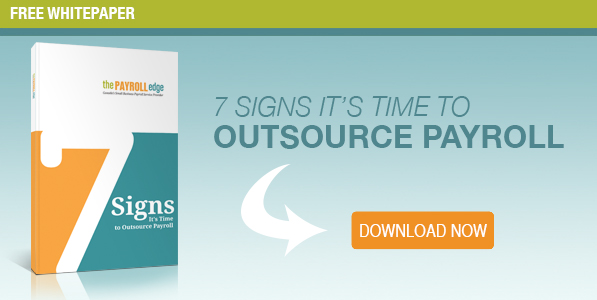Payroll efficiency is important for your company’s employer brand and employee satisfaction. Greater payroll efficiency can also save time and money for the organization. Yet, it’s not always a top focus in the wake of core activities.
Sometimes, improving efficiency isn’t as simple as trying to cut down on time spent or shave budgets. If you work in a smaller business, the budget you have might be precious, and cutting it may do more harm than good. Fortunately, there are ways to boost efficiency without cutting time or resources.
In fact, there are 3 brilliant ways to improve payroll efficiency that only require a change in perspective.
1. Automated Payroll Processing
We live in the digital age. While many companies already use payroll software, there are still thousands of businesses that haven't yet automated payroll processing. This might mean they're still writing paper cheques or digging out old receipts locked away in boxes in a storeroom somewhere. This is common practice in many small businesses. While, traditionally, this might have worked for many, nowadays it only slows down the process and creates a lot of unnecessary difficulty and room for error.
When you automate payroll processing, cross-referencing becomes a breeze. You can pull up old referential pay stubs, historical expense reports, and employee files without any trouble at all.
You should also consider offering direct deposit if you don't already—it not only improves accuracy and saves paper, but many employees find it more convenient since they don’t have to go into the office to collect their pay cheque. Plus, there’s no risk of losing their cheques, either. If you or your employees prefer traditional paper cheques, consider offering digital cheques instead. Manually writing dozens of cheques is not only time consuming, but more prone to error.
2. Focus on Communication and Transparency
Automating your processes is one of the best ways to improve payroll, and it also leads to our next strategy—communication and transparency. Now, more than ever, people expect transparency in their workplace, in their home lives, from their politicians—everywhere. Transparency creates peace of mind, fosters trust and respect, and can even help payroll efficiency as well.
By maintaining and sharing a clear pay schedule that can be easily accessed by employees, you can help make sure all expenses, invoices, and receipts are submitted on time. Allowing your employees access to the calendar so they can tell you when they need to book off time makes schedules dramatically easier to manage from the HR perspective as well.
Consider how much time is taken up by minor requests, clarifications, and questions that have easy answers. Now, think of how much of that could be saved by improving communication and increasing transparency. Automation can help here, too. For example, you can empower employees to find answers on their own by providing them with a self-serve employee portal, where they can find their recent pay stubs, change their address, manage their time-off requests, and more.
3. Partner with a Payroll Service Provider
Some companies, especially smaller ones, are always looking for ways to manage payroll more effectively but simply don't have the time or resources to implement new software and efficiencies. There's always new technology around every turn, and it can be difficult to keep up. That's why so many companies today outsource their payroll processing duties to a payroll service provider. In effect, outsourcing your payroll and HR can dramatically improve every aspect of the payroll. By outsourcing, you can ensure consistent payroll schedules, accurate pay cheques, and legal compliance at all times.
Outsourcing can be especially valuable if you pay employees in other countries, too. Setting up a business entity in another country like the US and keeping up to date with payroll laws and conversion rates in that country can be time consuming and overwhelming. In this case, consider working with an employer of record (EOR), which can take over the legal responsibility of employing and paying your out-of-country employees.




 Download Now
Download Now 

